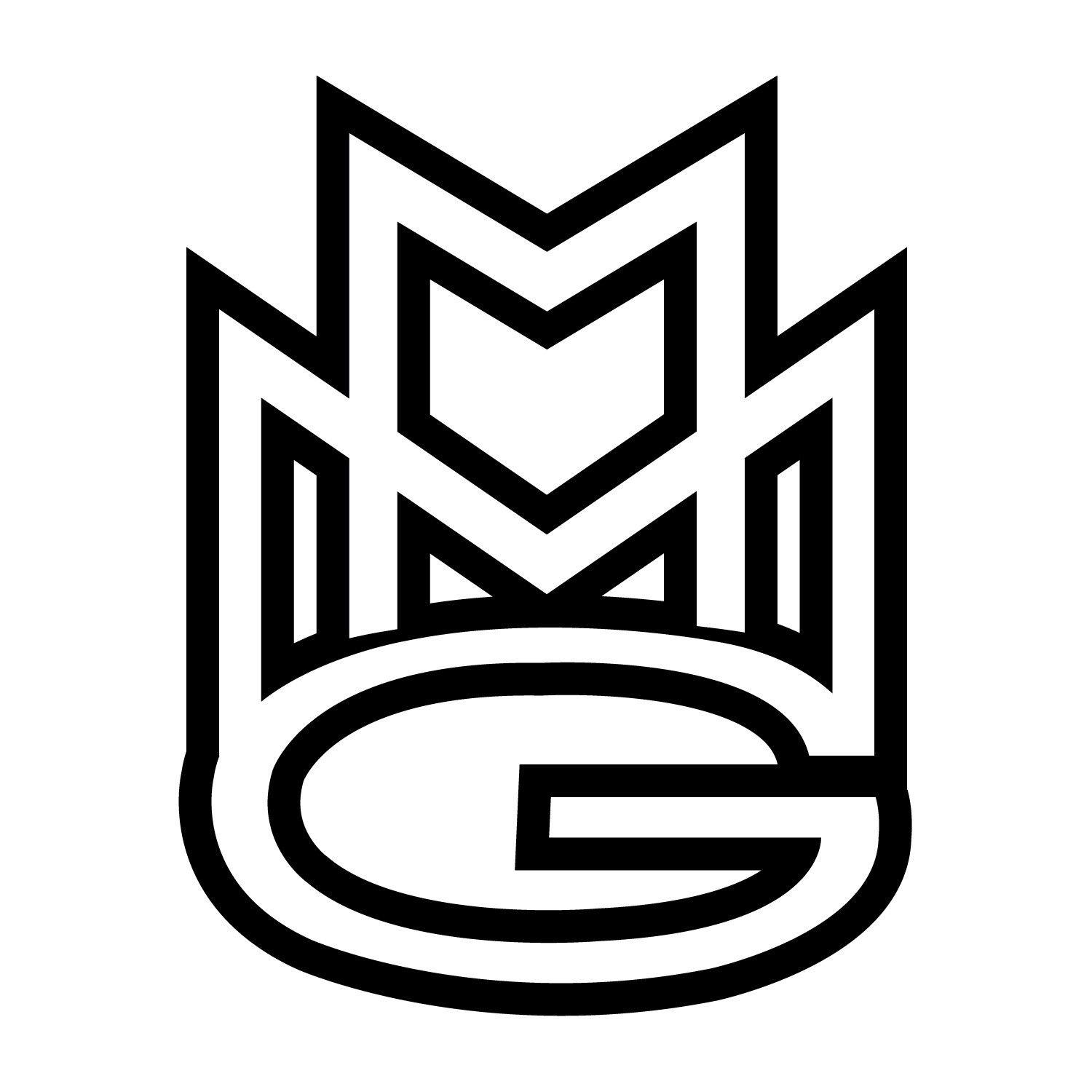Maybach Music Group: Unveiling The Roots Of A Hip-Hop Dynasty
For fans of hip-hop, the name MMG instantly conjures images of opulent beats, street-savvy lyrics, and a roster of artists who define modern luxury rap. But beyond the diamond-encrusted chains and high-octane music videos, a fundamental question often arises: where is MMG from? This isn't just about a physical location on a map; it's about understanding the cultural crucible, the visionary mind, and the strategic decisions that birthed one of the most influential record labels in contemporary music. Delving into the origins of Maybach Music Group reveals a fascinating journey from humble beginnings to a global powerhouse.
This article will take you on a deep dive into the history, the driving forces, and the cultural significance behind MMG, providing a comprehensive answer to the question of its origins. From its foundational principles to its enduring legacy, we'll explore how this label became synonymous with success and a distinctive sound within the hip-hop landscape.
Table of Contents
- The Genesis of a Hip-Hop Empire: Understanding MMG's Roots
- The Rise to Prominence: MMG's Impact on Hip-Hop
- Key Artists and Their Contributions
- The Business of Music: MMG's Structure and Operations
- Challenges, Evolution, and Longevity
- MMG's Cultural Footprint and Legacy
- Where Is MMG From? Unpacking the Geographic and Creative Origins
- The Future of Maybach Music Group
The Genesis of a Hip-Hop Empire: Understanding MMG's Roots
To truly understand where MMG is from, one must first comprehend the journey of its founder, William Leonard Roberts II, better known as Rick Ross. His personal narrative is inextricably linked to the label's identity and its meteoric rise. MMG is not just a company; it's an extension of Ross's vision, ambition, and street-hustle ethos.
- Los Hondurenos Menu
- Dr Marcia Schaefer
- Josh Saunders Bjj Record
- Luxury Beach Club Islas Del Rosario
- Hermosa Beach Open 2025
The Visionary: Rick Ross's Journey to MMG
Rick Ross's path to becoming a music mogul began long before the inception of Maybach Music Group. Born in Clarksdale, Mississippi, in 1976, he spent his formative years in Carol City, Florida, a neighborhood in Miami-Dade County. This upbringing in South Florida profoundly shaped his music, his persona, and ultimately, the sound that would become synonymous with MMG. His early career saw him signing with Suave House Records and later Def Jam Recordings, where he released his debut album, "Port of Miami," in 2006. This album, featuring hits like "Hustlin'," solidified his unique brand of opulent, yet gritty, street rap.
Ross's success as an artist gave him the leverage and capital to pursue a larger vision: creating his own empire. He recognized the need for a platform that truly embodied his artistic and business philosophy, one that could nurture talent with a similar drive and aesthetic. This entrepreneurial spirit, deeply rooted in his Miami background, laid the groundwork for what would become MMG.
Personal Data and Biodata: Rick Ross
| Attribute | Detail |
|---|---|
| Full Name | William Leonard Roberts II |
| Stage Name | Rick Ross |
| Born | January 28, 1976 |
| Birthplace | Clarksdale, Mississippi, U.S. |
| Raised In | Carol City, Florida, U.S. |
| Occupation | Rapper, Songwriter, Record Executive, Entrepreneur |
| Label Founded | Maybach Music Group (MMG) |
| Years Active | 1995–present |
| Genre | Hip hop, Gangsta rap, Trap |
Early Days and Foundational Artists
Maybach Music Group was officially founded by Rick Ross in 2009. The label's name itself, "Maybach," is a direct nod to the ultra-luxury German car brand, symbolizing the aspirational wealth and success that became MMG's hallmark. Initially, MMG operated as a subsidiary of Warner Bros. Records, providing it with significant distribution and marketing muscle from the outset. This strategic partnership was crucial for its rapid expansion.
- Jennifer Hufnell Nj
- Joel Ware Wife Obituary
- Tarek Souidan Ford Motor Company
- Simone Swan Age
- Cartel Money Disposable
The early roster of MMG artists was carefully curated to reflect Ross's vision. Among the first to sign were artists who embodied the street-to-riches narrative and possessed distinct lyrical prowess. This included artists like Wale, Meek Mill, and French Montana (though French Montana later became more affiliated with Bad Boy Records, his early association with MMG was notable). These artists, each with their unique regional flair – Wale from Washington D.C., Meek Mill from Philadelphia – brought diverse sounds that, when combined with Ross's Miami-centric style, created a powerful, multifaceted collective. The synergy among these foundational artists was key to establishing MMG's reputation for quality and consistency.
The Rise to Prominence: MMG's Impact on Hip-Hop
MMG's ascent was swift and undeniable. By the early 2010s, the label had become a dominant force in hip-hop, largely due to a combination of strategic artist signings, a consistent output of high-quality music, and a masterful understanding of branding. The label wasn't just releasing albums; it was cultivating a lifestyle brand centered on ambition, luxury, and authenticity. This aspirational image resonated deeply with fans, making the question of where MMG is from less about a physical address and more about a state of mind.
The label's collaborative projects, particularly the "Self Made" compilation series, played a pivotal role in showcasing the collective strength of the MMG roster. These albums featured tracks where artists seamlessly blended their styles, creating anthems that topped charts and permeated pop culture. The "Self Made" series served as a powerful declaration of MMG's collective talent and its ambition to conquer the industry. Each release from the label was met with anticipation, demonstrating the strong fan base and critical acclaim MMG had quickly garnered.
Furthermore, MMG's success was amplified by its strong presence in music videos, which consistently depicted the lavish lifestyle associated with the Maybach brand. These visuals were not just promotional tools; they were extensions of the label's identity, reinforcing its themes of wealth, power, and success. This cohesive branding across music, visuals, and artist personas helped MMG carve out a unique niche in the competitive hip-hop landscape.
Key Artists and Their Contributions
The strength of Maybach Music Group lies not only in its founder but also in the diverse and talented artists who have called it home. Each artist brought a unique flavor, contributing to the rich tapestry of MMG's sound and expanding its reach across different subgenres of hip-hop.
Iconic Albums and Chart-Topping Hits
MMG's discography is replete with albums and singles that have left an indelible mark on hip-hop. Rick Ross himself continued to release critically acclaimed and commercially successful albums under the MMG banner, including "Teflon Don" (2010), "God Forgives, I Don't" (2012), and "Mastermind" (2014). These projects consistently delivered his signature sound, blending grand orchestral productions with street narratives.
- Meek Mill: His debut album, "Dreams and Nightmares" (2012), became a landmark project, showcasing his raw energy and powerful storytelling. Tracks like the title song's intro became iconic.
- Wale: Known for his lyrical depth and eclectic style, Wale delivered albums like "Ambition" (2011) and "The Gifted" (2013), demonstrating MMG's versatility beyond just trap music.
- Gunplay: A rugged voice from the streets of Miami, Gunplay's contributions to MMG compilations and his own projects added a raw, uncompromising edge to the label's sound.
- Omarion: The R&B singer brought a smooth, melodic dimension to MMG, expanding the label's appeal beyond pure rap and proving its ability to foster diverse talent.
These artists, along with others, consistently produced chart-topping singles and albums, solidifying MMG's reputation as a hit factory. The label's ability to identify, develop, and market such diverse talent speaks volumes about its operational prowess and artistic vision.
The MMG Roster: Beyond the Core
While Rick Ross, Meek Mill, and Wale are often considered the pillars of MMG, the label has also been home to a wider array of artists, each contributing to its expansive legacy. These artists, though perhaps not as widely known as the core trio, played crucial roles in diversifying MMG's sound and reach.
- Stalley: Hailing from Ohio, Stalley brought a unique, soulful, and conscious rap style, offering a different perspective within the MMG framework.
- Rockie Fresh: A Chicago native, Rockie Fresh blended melodic flows with introspective lyrics, appealing to a younger, more alternative hip-hop audience.
- Fat Trel: Representing Washington D.C., Fat Trel added a grittier, street-oriented sound, further cementing MMG's connection to diverse urban narratives.
The continuous evolution of the MMG roster, with new artists joining and some departing, reflects the dynamic nature of the music industry. However, the consistent thread has always been the pursuit of excellence and a commitment to the "boss" mentality that Rick Ross instilled.
The Business of Music: MMG's Structure and Operations
Beyond the music, Maybach Music Group is a shrewd business operation. Understanding where MMG is from also requires an appreciation for its strategic partnerships and its operational model. Initially, MMG functioned as a subsidiary label, leveraging the infrastructure of major record companies for distribution and promotion. This model allowed MMG to focus on talent acquisition and artistic development while benefiting from established industry networks.
Over the years, MMG has maintained its relationship with major labels, primarily through its long-standing deal with Atlantic Records (a subsidiary of Warner Music Group). This partnership has provided MMG artists with global reach, robust marketing campaigns, and access to a vast network of industry professionals. Rick Ross, as the CEO, has been instrumental in navigating these complex business relationships, ensuring that the label's artists receive optimal support and exposure.
Furthermore, MMG has expanded beyond just music releases. The brand has ventured into merchandise, tours, and various entrepreneurial endeavors, all designed to amplify the MMG lifestyle. This diversification is a testament to Ross's business acumen and his understanding that a modern music label must be more than just a recording house; it must be a multifaceted brand. The "boss" persona is not just for show; it reflects a genuine commitment to building a lasting enterprise.
Challenges, Evolution, and Longevity
No journey to the top is without its challenges, and MMG has faced its share. The music industry is notoriously volatile, with shifting trends, evolving consumption habits, and intense competition. MMG has had to adapt to these changes, from the rise of streaming services to the increasing importance of social media in artist promotion. The question of where MMG is from also touches upon its ability to remain relevant and influential in a constantly changing landscape.
The label has navigated various internal and external pressures, including changes in artist rosters, public scrutiny, and the ever-present demand for fresh content. Despite these hurdles, MMG has demonstrated remarkable resilience and adaptability. This is largely due to Rick Ross's consistent presence and his ability to keep the label's core vision intact while allowing for artistic evolution.
MMG's longevity can be attributed to several factors: its strong brand identity, its commitment to quality music, and its founder's enduring relevance in hip-hop. While some artists have moved on to pursue solo ventures or other opportunities, the foundational impact of MMG on their careers remains undeniable. The label has proven its ability to foster talent and provide a launchpad for significant careers, ensuring its place in hip-hop history.
MMG's Cultural Footprint and Legacy
The influence of Maybach Music Group extends far beyond album sales and chart positions. MMG has left a significant cultural footprint, shaping trends in fashion, slang, and the broader narrative of success in hip-hop. The "boss" aesthetic, characterized by luxury cars, high-end fashion, and an unapologetic display of wealth, became a dominant motif in the genre, largely popularized by MMG.
The label's music often serves as a soundtrack to ambition, inspiring listeners to pursue their own versions of success. Lyrics frequently touch upon themes of overcoming adversity, achieving financial independence, and enjoying the fruits of labor. This aspirational messaging resonates with a wide audience, making MMG more than just a record label; it's a symbol of a particular kind of American dream, albeit one with a distinct street edge.
Furthermore, MMG's impact is seen in the countless artists who have been inspired by its sound and business model. The collective strength demonstrated in the "Self Made" series influenced other labels and artist collectives to pursue similar collaborative projects. MMG didn't just create music; it created a movement, solidifying its place as a pivotal entity in 21st-century hip-hop.
Where Is MMG From? Unpacking the Geographic and Creative Origins
So, after exploring its history and impact, we can definitively answer the question: where is MMG from? Geographically, Maybach Music Group is fundamentally rooted in Miami, Florida. This is Rick Ross's adopted hometown, the place where he honed his craft, built his network, and drew much of the inspiration for his music and the label's aesthetic. Miami's vibrant, often gritty, yet undeniably luxurious atmosphere is woven into the very fabric of MMG's sound and image.
However, "where is MMG from" extends beyond a simple geographical pinpoint. Creatively, MMG is from a convergence of influences:
- The Hustle Mentality: Born from Rick Ross's personal journey from the streets to success, the label embodies an unwavering commitment to hard work, ambition, and overcoming obstacles.
- Luxury Rap Aesthetic: MMG pioneered and perfected a sound that seamlessly blended street narratives with opulent production, creating a unique subgenre that celebrated wealth and aspiration.
- Diverse Regional Sounds: While rooted in Miami, MMG strategically incorporated artists from various cities like Philadelphia (Meek Mill) and Washington D.C. (Wale), allowing the label to draw from a broader spectrum of hip-hop styles and lyrical approaches. This fusion of regional sounds under one cohesive brand is a testament to its creative origins.
- Strategic Business Acumen: The label's origin also lies in Rick Ross's keen understanding of the music business, from forging major label partnerships to branding and marketing.
In essence, MMG is from the mind of Rick Ross, nurtured by the cultural landscape of Miami, and amplified by a collective of talented artists who shared a similar vision. It's a testament to how personal experience, strategic planning, and artistic collaboration can birth a global phenomenon. The answer to where MMG is from is therefore multi-layered, encompassing geography, individual vision, and a collective creative spirit.
The Future of Maybach Music Group
As the music industry continues to evolve, so too will Maybach Music Group. While the landscape of record labels has shifted dramatically with the rise of independent artists and direct-to-fan platforms, MMG's foundational principles—quality music, strong branding, and a clear artistic vision—remain timeless. Rick Ross continues to be an active force in music, both as an artist and as a label head, ensuring MMG's ongoing relevance.
The label will likely continue to adapt to new technologies and consumption patterns, exploring innovative ways to connect with audiences and monetize content. Whether through new artist signings, strategic partnerships, or ventures into emerging digital spaces, MMG's future will undoubtedly be shaped by its ability to innovate while staying true to the "boss" ethos that defines it. The legacy of where MMG is from will continue to influence its trajectory, maintaining its position as a significant player in the global music scene.
Conclusion
In conclusion, the question of where is MMG from leads us on a journey that transcends a simple geographical location. Maybach Music Group originated from the visionary mind of Rick Ross, deeply influenced by his upbringing in Miami, Florida. It blossomed from a strategic partnership with Warner Bros. Records into a powerhouse label that defined an era of luxury rap.
MMG's roots are intertwined with the hustle, the ambition, and the unique cultural tapestry of South Florida, which Rick Ross masterfully translated into a global brand. Through a roster of iconic artists like Meek Mill and Wale, and a consistent output of chart-topping music, MMG cemented its place as a cultural touchstone in hip-hop. Its legacy is not just in the music it produced, but in the aspirational lifestyle it embodied and the entrepreneurial spirit it championed.
We hope this comprehensive exploration has provided you with a deeper understanding of Maybach Music Group's origins and its enduring impact. What are your favorite MMG moments or artists? Share your thoughts in the comments below! And if you enjoyed this deep dive, be sure to explore our other articles on the history of influential music labels and artists.
- Gina Caputo Dermatologist
- Naod Welday Utah
- Joel Ware Wife Obituary
- Levi Turner Birthday
- Knoxville Survival Swim Academy

MMG Logo - LogoDix

MMG Logo - LogoDix

MMG Logo - LogoDix